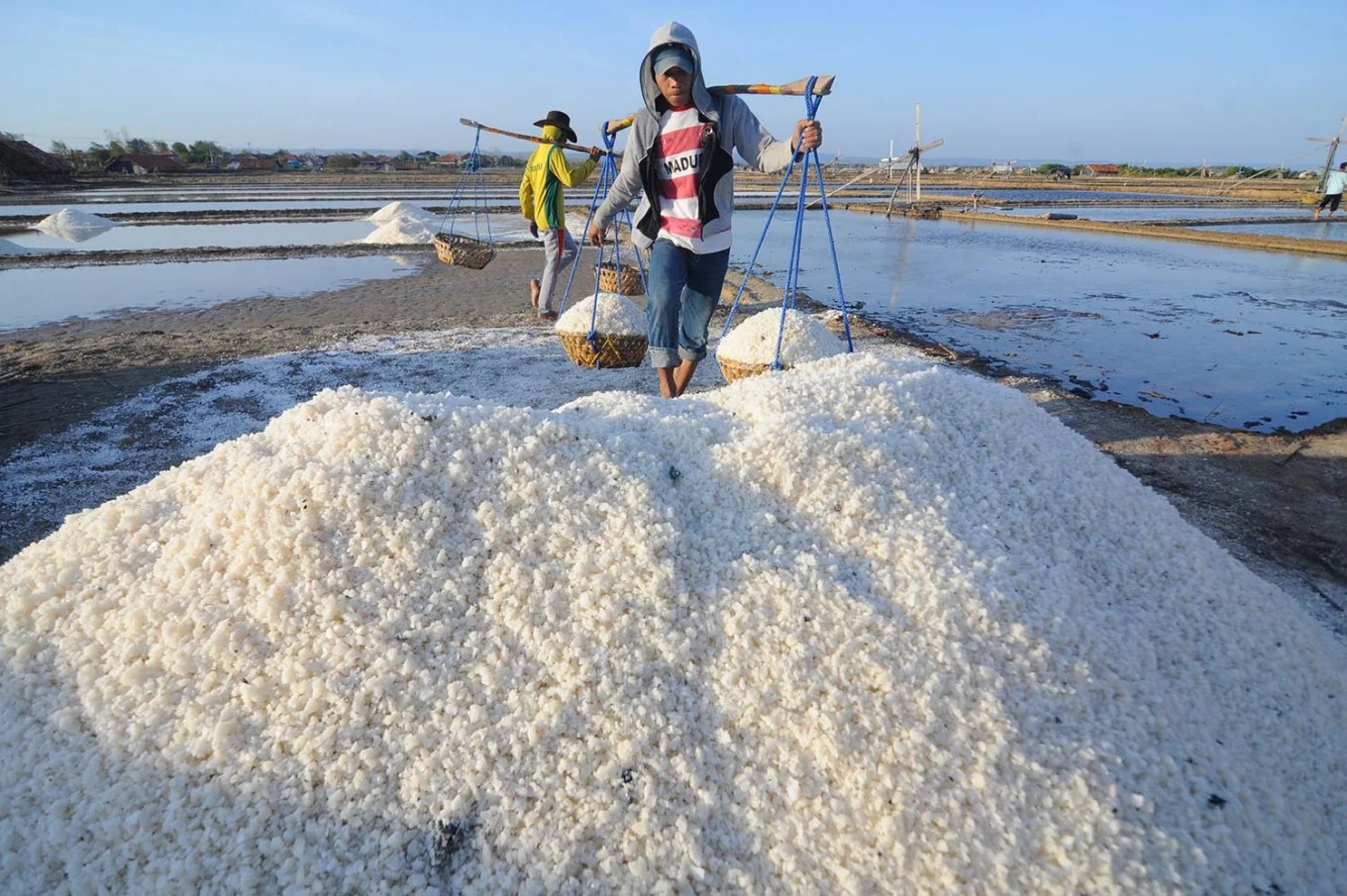Salt is an essential ingredient in the Indonesian cuisine, and the country has a long history of salt production dating back to the pre-colonial era.
The salt industry in Indonesia is currently facing significant challenges, and production has been in decline in recent years.
Here are some of the reasons why:
Competition from cheaper imported salt
One of the significant factors contributing to the decline of salt harvesting in Indonesia is the competition from cheaper imported salt. Indonesia has been importing salt from neighboring countries such as Australia, China, and India, where salt production costs are lower. The imported salt is often of higher quality, and the cheaper price has made it challenging for local salt producers to compete and maintain profitability.
Climate change
Indonesia’s changing weather patterns have also had a significant impact on salt production. Increasingly unpredictable rainfall patterns have made it difficult for salt farmers to predict when to start and end the harvest season, leading to lower yields. In addition, rising sea levels have made it challenging to maintain salt farms close to the coast, where most of the salt production takes place.
Technological advancements
Traditional salt harvesting methods in Indonesia involve manual labor and are time-consuming. As the country develops, modern technology is being used to produce salt on a larger scale and more efficiently. This has led to the decline of small-scale traditional salt production, which has been a part of the Indonesian culture for centuries.
Environmental degradation
Some salt production methods, such as using mangrove forests to make salt pans, have led to environmental degradation, including deforestation and soil erosion. This has led to decreased productivity of salt farms and negatively impacted the local ecosystem. In addition, overuse of groundwater has led to land subsidence, making it more challenging to maintain salt farms in coastal areas.
Lack of government support
Salt production in Indonesia is largely carried out by small-scale farmers and is not well-regulated or supported by the government. This has led to a lack of investment in infrastructure, research, and development of new salt production technologies, which has contributed to the decline of the industry. In addition, the lack of government support has made it difficult for small-scale farmers to compete with larger producers who have access to better technology and resources.
In conclusion, the Indonesian salt industry is facing significant challenges due to a combination of factors, including competition from cheaper imported salt, climate change, technological advancements, environmental degradation, and lack of government support. To revive the industry, there needs to be a concerted effort to address these issues and support small-scale farmers in adopting new technologies and sustainable practices. This will not only help revive the salt industry but also support the livelihoods of thousands of small-scale farmers who depend on salt production for their income.




